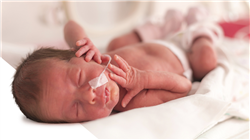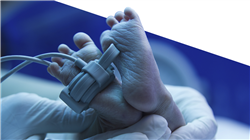University certificate
The world's largest faculty of medicine”
Introduction to the Program
With this 100% online Postgraduate diploma, you will cover fundamental aspects for the care of critically ill pediatric patients, acquiring practical skills and high-level theoretical knowledge"

Currently, Respiratory, Neurological and Infectious Emergencies continue to represent significant challenges in Pediatric Intensive Care Units (PICU). With the evolution of medicine and the increasing complexity of cases, medical teams are faced with a wide range of conditions that require specialized care and advanced resources.
This is how this Postgraduate diploma in Respiratory, Neurological and Infectious Emergencies was born, which will address crucial aspects such as the early recognition of Acute Respiratory Failure in pediatric patients; the application of airway management techniques, including endotracheal intubation; and the management of complications associated with Chronic Respiratory Diseases. The interpretation of diagnostic tests and the development of ventilatory modes to optimize care will also be covered in depth.
Likewise, professionals will be skilled to identify and appropriately manage a variety of critical situations, from Epileptic Seizures, to signs of increased Intracranial Pressure and Cerebral Herniation. In addition, the diagnosis and treatment of conditions such as Pediatric Coma will be prioritized, as well as the application of neuroprotective techniques to mitigate secondary brain damage.
Finally, experts will be prepared to identify early signs of Sepsis and Septic Shock in children, applying rapid response protocols and initial management strategies. Likewise, the differential diagnosis of common Infectious Diseases in the PICU, as well as the recognition and treatment of complications associated with Severe Infections and Sepsis will be deepened.
In this scenario, TECH has created a complete online program, specifically designed to meet the individual needs of students, avoiding obstacles such as having to move to a physical location or comply with an established schedule. Additionally, this program is supported by the innovative Relearning methodology, which focuses on the repetition of fundamental concepts to guarantee an effective and fluid understanding of the contents.
You will be specialized to recognize and respond effectively to a wide range of respiratory, neurological and infectious emergencies, as well as the competence to implement specialized interventions"
This Postgraduate diploma in Respiratory, Neurological and Infectious Emergencies in the PICU contains the most complete and up-to-date scientific program on the market. The most important features include:
- The development of practical cases presented by experts in Respiratory, Neurological and Infectious Emergencies in the Pediatric ICU
- The graphic, schematic and eminently practical contents with which it is conceived gather scientific and practical information on those disciplines that are indispensable for professional practice
- Practical exercises where the self-assessment process can be carried out to improve learning
- Its special emphasis on innovative methodologies
- Theoretical lessons, questions to the expert, debate forums on controversial topics, and individual reflection assignments
- Content that is accessible from any fixed or portable device with an Internet connection
You will delve into Neurological Emergencies, gaining the skills necessary to identify and manage Seizures, alterations in consciousness and signs of increased Intracranial Pressure"
The program’s teaching staff includes professionals from the field who contribute their work experience to this educational program, as well as renowned specialists from leading societies and prestigious universities.
The multimedia content, developed with the latest educational technology, will provide the professional with situated and contextual learning, i.e., a simulated environment that will provide immersive education programmed to learn in real situations.
This program is designed around Problem-Based Learning, whereby the professional must try to solve the different professional practice situations that arise during the course. For this purpose, students will be assisted by an innovative interactive video system created by renowned and experienced experts.
You will cover relevant aspects such as the interpretation of laboratory and radiological studies for an accurate evaluation of pediatric patients and radiological studies for an accurate evaluation of pediatric patients, through an extensive library of multimedia resources"

You will delve into the management of ventilatory modes and the pathophysiology of various pathologies, such as Bronchiolitis and Pediatric Acute Respiratory Distress Syndrome. With all TECH's quality guarantees!"
Why study at TECH?
TECH is the world’s largest online university. With an impressive catalog of more than 14,000 university programs available in 11 languages, it is positioned as a leader in employability, with a 99% job placement rate. In addition, it relies on an enormous faculty of more than 6,000 professors of the highest international renown.

Study at the world's largest online university and guarantee your professional success. The future starts at TECH”
The world’s best online university according to FORBES
The prestigious Forbes magazine, specialized in business and finance, has highlighted TECH as “the world's best online university” This is what they have recently stated in an article in their digital edition in which they echo the success story of this institution, “thanks to the academic offer it provides, the selection of its teaching staff, and an innovative learning method aimed at educating the professionals of the future”
A revolutionary study method, a cutting-edge faculty and a practical focus: the key to TECH's success.
The most complete study plans on the university scene
TECH offers the most complete study plans on the university scene, with syllabuses that cover fundamental concepts and, at the same time, the main scientific advances in their specific scientific areas. In addition, these programs are continuously being updated to guarantee students the academic vanguard and the most in-demand professional skills. In this way, the university's qualifications provide its graduates with a significant advantage to propel their careers to success.
TECH offers the most comprehensive and intensive study plans on the current university scene.
A world-class teaching staff
TECH's teaching staff is made up of more than 6,000 professors with the highest international recognition. Professors, researchers and top executives of multinational companies, including Isaiah Covington, performance coach of the Boston Celtics; Magda Romanska, principal investigator at Harvard MetaLAB; Ignacio Wistumba, chairman of the department of translational molecular pathology at MD Anderson Cancer Center; and D.W. Pine, creative director of TIME magazine, among others.
Internationally renowned experts, specialized in different branches of Health, Technology, Communication and Business, form part of the TECH faculty.
A unique learning method
TECH is the first university to use Relearning in all its programs. It is the best online learning methodology, accredited with international teaching quality certifications, provided by prestigious educational agencies. In addition, this disruptive educational model is complemented with the “Case Method”, thereby setting up a unique online teaching strategy. Innovative teaching resources are also implemented, including detailed videos, infographics and interactive summaries.
TECH combines Relearning and the Case Method in all its university programs to guarantee excellent theoretical and practical learning, studying whenever and wherever you want.
The world's largest online university
TECH is the world’s largest online university. We are the largest educational institution, with the best and widest online educational catalog, one hundred percent online and covering the vast majority of areas of knowledge. We offer a large selection of our own degrees and accredited online undergraduate and postgraduate degrees. In total, more than 14,000 university degrees, in eleven different languages, make us the largest educational largest in the world.
TECH has the world's most extensive catalog of academic and official programs, available in more than 11 languages.
Google Premier Partner
The American technology giant has awarded TECH the Google Google Premier Partner badge. This award, which is only available to 3% of the world's companies, highlights the efficient, flexible and tailored experience that this university provides to students. The recognition as a Google Premier Partner not only accredits the maximum rigor, performance and investment in TECH's digital infrastructures, but also places this university as one of the world's leading technology companies.
Google has positioned TECH in the top 3% of the world's most important technology companies by awarding it its Google Premier Partner badge.
The official online university of the NBA
TECH is the official online university of the NBA. Thanks to our agreement with the biggest league in basketball, we offer our students exclusive university programs, as well as a wide variety of educational resources focused on the business of the league and other areas of the sports industry. Each program is made up of a uniquely designed syllabus and features exceptional guest hosts: professionals with a distinguished sports background who will offer their expertise on the most relevant topics.
TECH has been selected by the NBA, the world's top basketball league, as its official online university.
The top-rated university by its students
Students have positioned TECH as the world's top-rated university on the main review websites, with a highest rating of 4.9 out of 5, obtained from more than 1,000 reviews. These results consolidate TECH as the benchmark university institution at an international level, reflecting the excellence and positive impact of its educational model.” reflecting the excellence and positive impact of its educational model.”
TECH is the world’s top-rated university by its students.
Leaders in employability
TECH has managed to become the leading university in employability. 99% of its students obtain jobs in the academic field they have studied, within one year of completing any of the university's programs. A similar number achieve immediate career enhancement. All this thanks to a study methodology that bases its effectiveness on the acquisition of practical skills, which are absolutely necessary for professional development.
99% of TECH graduates find a job within a year of completing their studies.
Postgraduate Diploma in Respiratory, Neurological and Infectious Emergencies in the PICU
The Postgraduate Diploma in Respiratory, Neurological and Infectious Emergencies in the PICU program offered by TECH Global University is designed to train health professionals in the comprehensive management of critical situations in the pediatric intensive care unit. This advanced course offers a unique opportunity to acquire specialized knowledge and practical skills through online classes, allowing participants to access excellent academic content from anywhere in the world. Our institute is distinguished by its commitment to educational quality and innovation in teaching, offering programs that adapt to the needs and schedules of working professionals. Online classes provide the flexibility necessary for students to continue their clinical practice while acquiring advanced knowledge in the management of respiratory, neurological and infectious emergencies in the PICU. This modality allows for an interactive and accessible learning experience, promoting effective continuing education.
Obtain a degree to work in the PICU.
The syllabus of this Postgraduate Diploma covers everything from pathophysiology and diagnosis to the most advanced therapeutic strategies. Students will learn to identify and efficiently treat respiratory emergencies in children, manage pediatric neurological crises and control severe infections requiring intensive care. This program focuses on the development of essential clinical competencies, applying the latest evidence-based emergency protocols. Program participants will benefit from the experience and knowledge of a faculty composed of experts in pediatric intensive care. TECH Global University has renowned professionals who bring a practical and up-to-date perspective to the course content. All in all, our Postgraduate Diploma program is a valuable investment for any healthcare professional looking to climb the career ladder in the PICU. Take advantage of this great opportunity and enroll today!







